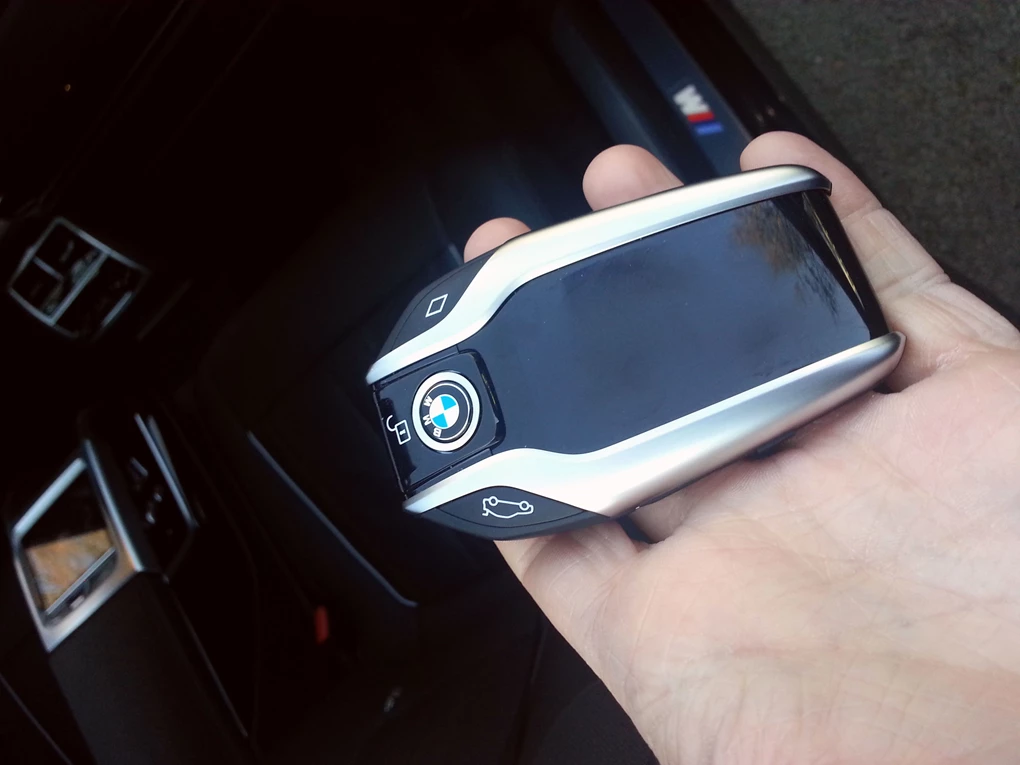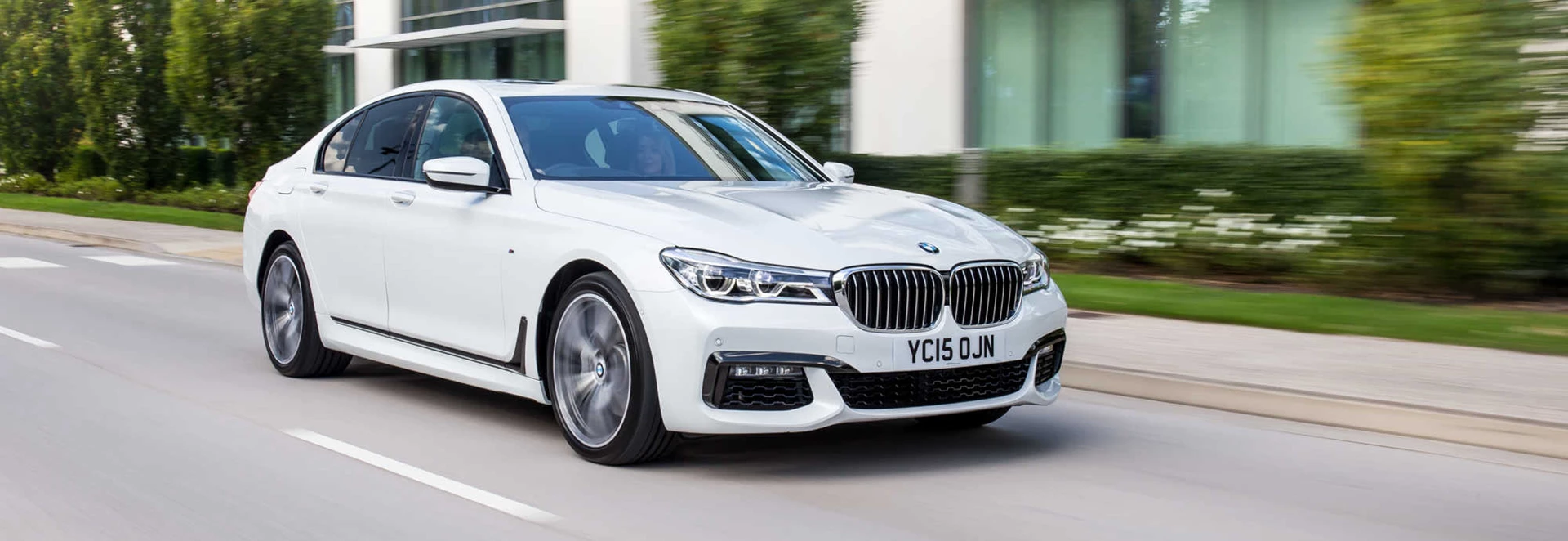The world’s most prominent manufacturers all boast a flagship luxury saloon, a vehicle designed as much to be driven in as it is to be driven. Comfort and refinement is prioritised over performance, and they are the test bed for the latest automotive technology. They boast equipment designed to enhance your life, that might one day filter down to your supermini, but which right now, is the reserve of cars like the BMW 7 Series.
Technology including a carbon-fibre reinforced backbone, a touch-screen key fob which can allow you to remotely drive the car in and out of tight parking spaces, night vision cameras, reclining seats and a champagne chiller are the order of the day. But, this is a segment which includes luminaries such as the Audi A8 and Jaguar XJ, while the Mercedes S-Class has long been a dominant force. So can the 7 Series take class honours?
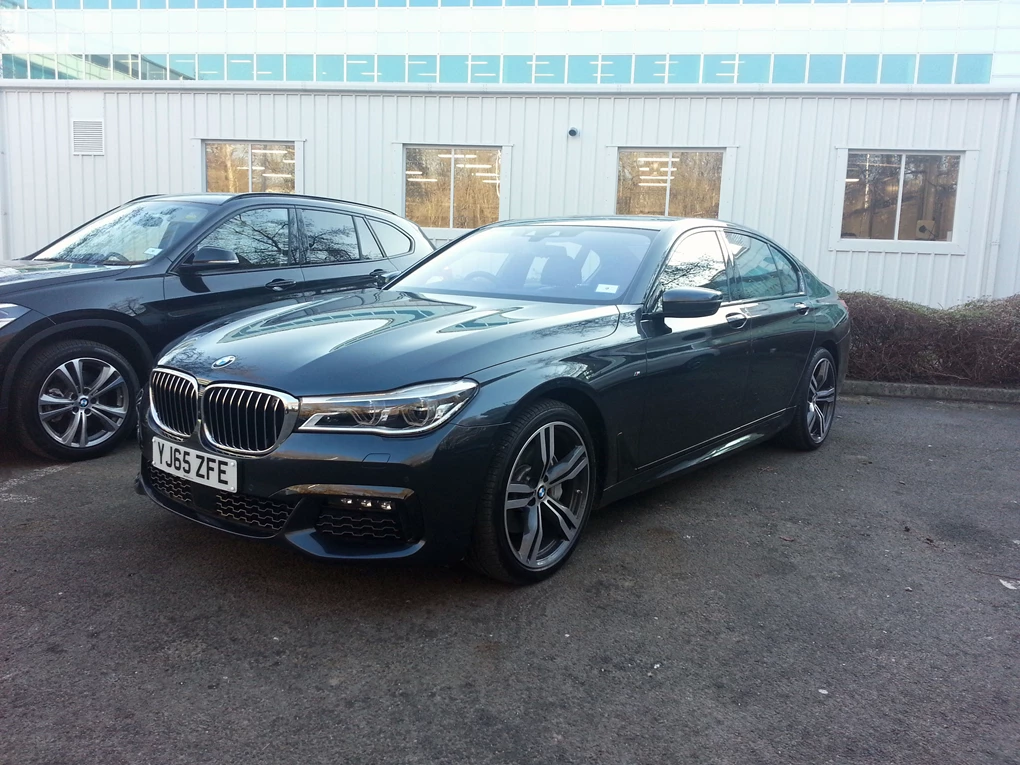
Performance
One probably shouldn’t boast about such things, but if they did, they’d tell you the popular 3.0-litre diesel engine propels the 730d to a quiet and smooth 62mph from rest in 6.1 seconds. If you require more accelerative transport, the 740d increases power from 261bhp to 316bhp and drops the 0-62mph time to a scant 5.2 seconds. While xDrive four-wheel drive is an option for the 730d, it’s fitted as standard with the 740d, while an automatic eight-speed gearbox is standard across the range.
In the petrol camp there are two options, the six-cylinder 740i or the V8 750i, with 322bhp or 444bhp, both of which are rear-wheel drive.
We tested the 730d xDrive, and can’t imagine wanting to go much quicker, especially with a VIP sat in the back. With the temperature barely above freezing, it was reassuring having four-wheel drive fitted, particularly when pulling out of sharp junctions, where the torque of the diesel motor could easily have spun up the rear wheels. Instead the 730d xDrive just grips and goes, and before you know it the gearbox has smoothly shuffled you up to the speed limit.
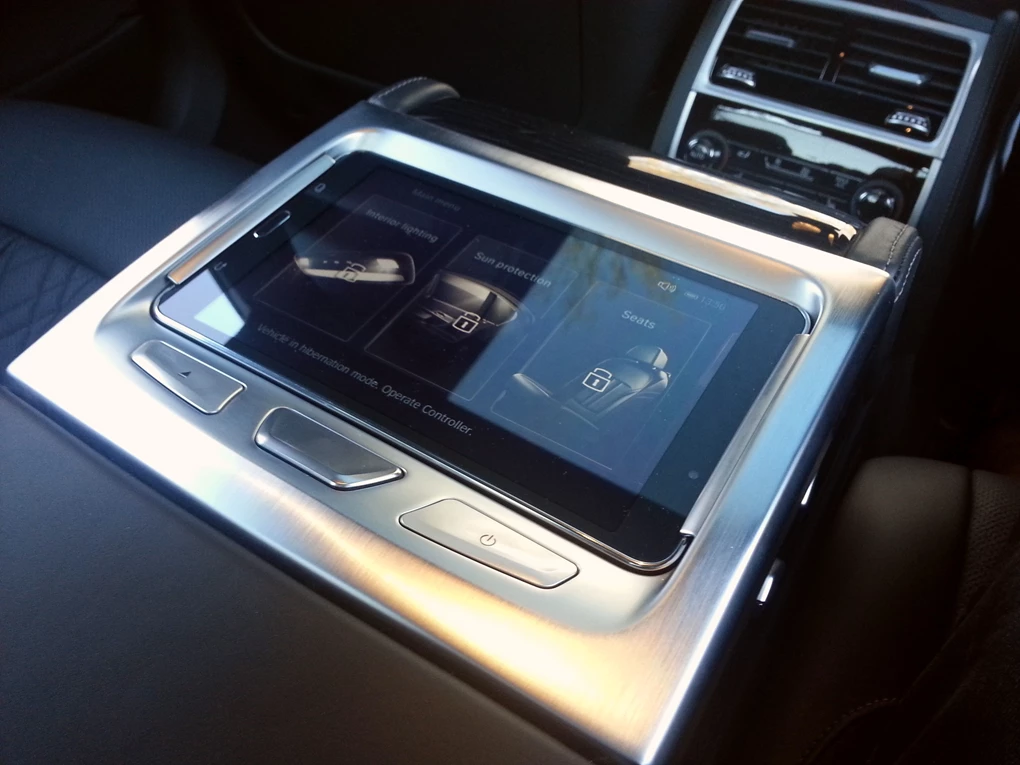
Ride and Handling
For such a large car, it does feel remarkably agile
Considering the 7 Series has enough tech to mount a space mission, the driving experience is refreshingly old-school BMW. The steering has a smooth and progressive feel, the chassis is balanced and the ride comfort is pliant, while there’s always that feeling of power in reserve from the engine. Air suspension is fitted as standard, so you can thank that for the great ride, and there’s even a mode which allows it to adjust its stiffness based on the sat-nav’s assessment of the road ahead. BMW being BMW, there are a huge number of driving modes, which now even get sub-sections specific to the 7 Series, but we think most people will leave it in Comfort or ECO PRO, the mode optimised for fuel economy. Of course, BMW also has a reputation for appealing to drivers, and the ‘Carbon Core’ under the skin of the 7 Series helps it come in 130kg lighter than its predecessor. For such a large car, it does feel remarkably agile, but the trade-off of its large alloy wheels and wide, low-profile sports tyres is some tyre noise inside the cabin and the occasional impact over sharp bumps.
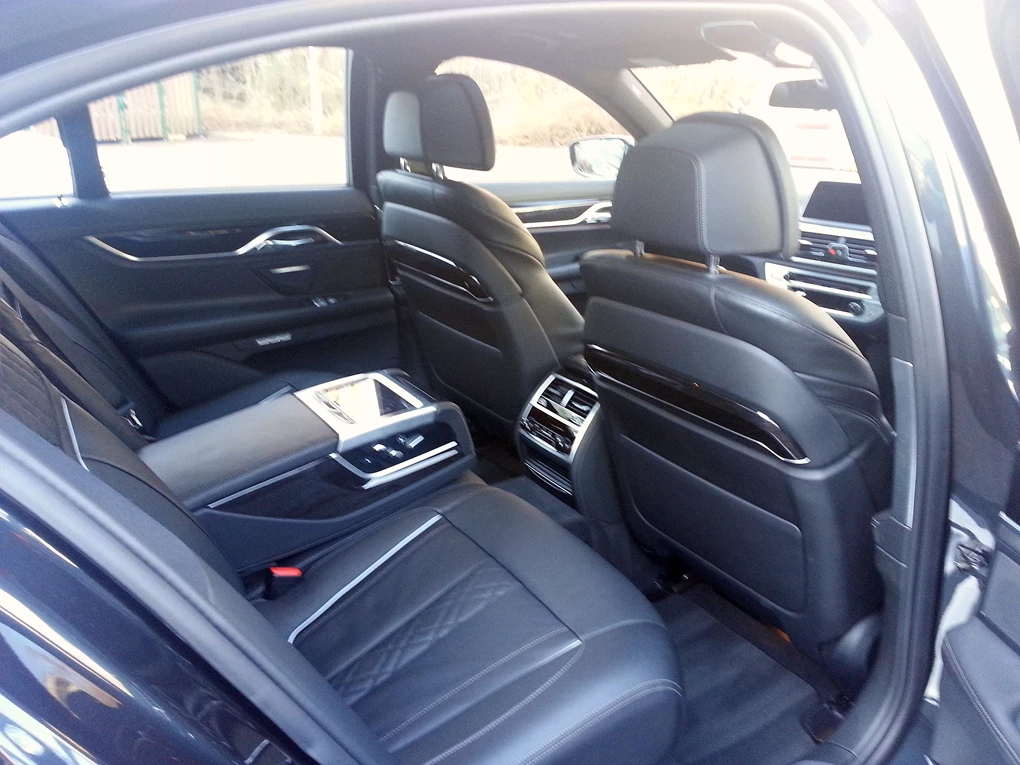
Interior and Equipment
The BMW 7 Series is the world’s first car that can drive in or out of a parking space by remote control.
Only the best materials have been used in the cabin, with Nappa leather for the seats and a mixture of chrome, aluminium and wood covering the dashboard. In fact, it’s so comprehensively trimmed, you’ll struggle to find any plastic on show in the cabin. Build quality is incredible, with each car individually measured and then fitted with bespoke trim strips and chrome instrument surrounds, to ensure a perfect fit. The four-zone climate control has its own touchscreen surface, while the infotainment system boasts a 12.3-inch display giving you access to a multitude of settings and the sat-nav. The 7 Series can also be equipped with several cameras, making parking and pulling out of junctions easier and safer. Of course, heated seats wouldn’t be advanced enough either, so choose the Heat Comfort package and the steering wheel, door pads and centre console armrests all warm up along with the seats. Two body styles are available, with the extended 7 Series increasing the wheelbase by 14cm for improved rear space and comfort. A massage function with eight programs should sooth away aches and pains, while a unique Vitality Programme has been devised to prompt rear occupants to perform stimulating exercises on longer journeys. An executive lounge seating option allows the front passenger seat to slide an extra 90mm forward and tilt away, while the rear seat reclines by up to 42.5 degrees and boasts impressive legroom. A tablet computer is available to control the infotainment system and climate control, while WiFi and rear screens can mirror content from your smartphone.
Cost
The entry-level version manages 60.1mpg, which is an incredible figure for a huge luxury saloon
The 7 Series starts from £64,530 for the 730d, while the extended 730Ld costs £68,480 and the four-wheel drive 730d xDrive costs from £67,260. This slightly undercuts the S-Class, which starts from around £67k. The entry-level version manages 60.1mpg, which is an incredible figure for a huge luxury saloon, while it emits 124g/km of CO2. The most economical S-Class manages 50.4mpg and 141g/km.
Our Verdict
Despite appearing closely matched, the current crop of luxury saloons provide a subtly different experience. While the S-Class is probably the most refined, the 7 Series is almost certainly the best to drive, should you want to take the hot seat.
